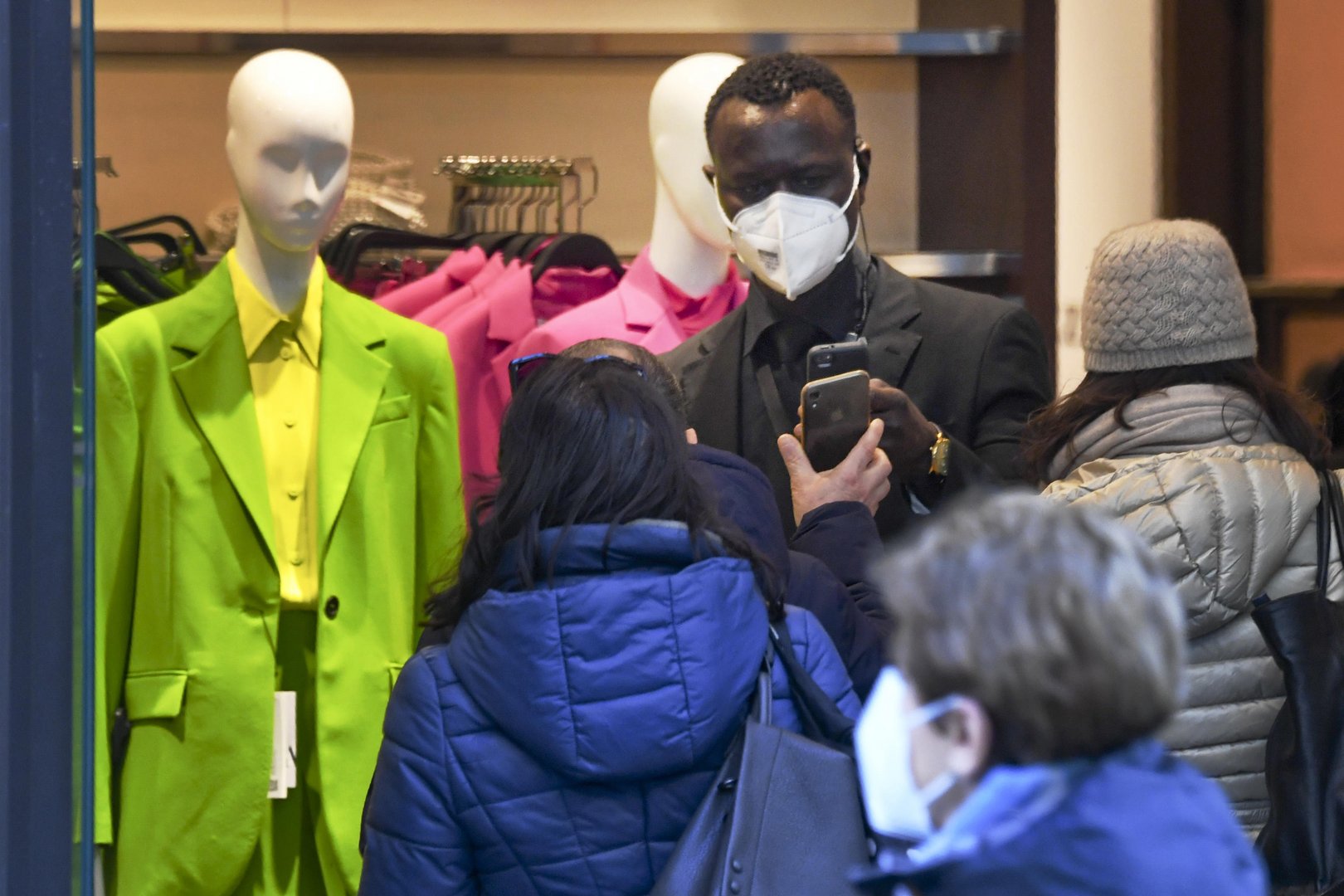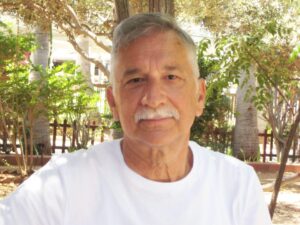And says we shouldn’t follow some fellow European countries yet in scrapping other Covid measures
The SafePass is still effective in the age of Omicron, while the need for a fourth Covid-19 vaccine dose across the general population will be revaluated towards September, according to government advisor Petros Karayiannis.
Speaking to the Cyprus Mail this week, he defended Cyprus’ hesitation to follow in the footsteps of other European countries which have scrapped – or plan to scrap – Covid-19 restrictions.
“We’ve still got a bit of Delta in the community, and we’ve got an increase in cases which will lead to an increase in hospitalisations,” he said, adding that the number of Covid-19 patients were down to 203 on Tuesday but went up to 235 on Wednesday, before slipping to 222 on Thursday.
“So we need to take it easy in case we go up to 5,000 infections a day again, in which case the health system will be burdened,” the professor of microbiology and molecular virology at the medical school of the University of Nicosia said.
But countries across Europe, most notably Denmark – which ended all Covid-19 related laws – are proceeding to lift restrictions despite record infections in some areas.
From February 1, even those Danes who test positive for Covid-19 are no longer legally required to isolate and instead are only recommended to do so.
Karayiannis warned that it’s a risky move and that their health systems may be impacted although they are countries which have greater hospitalisation capacities than other nations.
Denmark has acknowledged that infections will almost certainly rise following the removal of the restrictions, but they do not view Omicron – particularly within the context of high levels of population protection – as a critical threat to public health.
“We see these really high case numbers each day, but we don’t see it in the severity or in hospitals,” Dr Camilla Holten-Moller, the head of the Expert Group for Mathematical Modelling at the Danish Health Institute, told UnHerd this week.
So, there are some arguing that there will be risks for those opening up, but are there not also risks in other areas by keeping the restrictions?
“Well, some countries such as Italy for example are thinking of lifting some restrictions but not for the unvaccinated,” Karayiannis replied.
Italy has set out to fine those who refuse to proceed with a booster dose and the unvaccinated, but that’s a measure which wouldn’t be considered here, he said.
“I’m not saying that it’s not going to happen here [easing restrictions], it will happen, but once we’re sure that things are going in the right direction,” he added.
Another concern for Karayiannis is “the generation of new variants” by opening up amid high infection rates.
But what would the implication be of not being able to lift restrictions because it could lead to new variants?
“No, that’s not what’s going to guide the lifting of the restrictions: it’s what’s happening in the hospitals,” he said.
And comments this week from fellow government advisor Maria Koliou offered hope that hospitalisations could soon fall.
Koliou, who is an assistant professor of paediatrics and infectious diseases at the university of Cyprus medical school, said that about 90 per cent of patients in ICUs are still Delta patients. In other words, the majority of those in ICU are being treated for a variant which appears to have been outcompeted by Omicron; a variant which has led to a surge in infections but accounts for only ten per cent of ICU patients.
“Those that are in intensive care are with Delta, but for the hospitals overall it’s about half and half at the moment,” Karayiannis said, noting that ICUs are 90 Delta dominated although 75 per cent of those receiving treatment there are unvaccinated.
As for a potential fourth dose of the vaccine, a second booster, Karayiannis said that such a policy at the level of the general population would be revisited towards September.
On January 26, Israel broadened the eligibility for a fourth shot to adults under 60 with underlying health conditions and some others categorised vulnerable.
Karayiannis said a fourth shot for the immunosuppressed could be decided upon sooner, and that for the elderly it is not currently seen as necessary.
“Although the elderly get infected, at the moment they don’t seem to have serious symptoms,” he said.
With fourth shots being rolled out, may there be yearly vaccinations?
“Well, it is a possibility depending on how the pandemic evolves, in which way the virus will become endemic and how it will behave – that will determine the need for seasonal vaccinations along the lines of the flu vaccine,” he said.
If this is the case, then presumably – just like the flu vaccine – vaccination becomes a purely personal choice and most often for select groups.
“Well yes, with the flu virus – because there is already immunity within the community – we try to protect the vulnerable, but with Covid-19 we’re not there yet at this point in time; because the virus keeps changing it’s not as effective in making disease milder, yet,” he said.
And if we’re on the path towards dealing with Covid-19 as we do the flu, Karayiannis agreed that the SafePass would no longer be tenable – “it would go”.
But many nations are already pressing ahead and scrapped vaccine passes, on the understanding – as a top Israeli government advisor told the Cyprus Mail last week – that they are now less relevant than they once were.
“If your objective of the health pass is to generate a safe environment for those who are vaccinated, I think that is no longer the case because unfortunately people who are vaccinated – even with four doses – can get contaminated,” professor Cyrille Cohen, head of the laboratory of immunotherapy at Bar-Ilan university and member of Israel’s advisory committee for clinical trials on Covid-19 vaccines, told the Cyprus Mail.
We asked Karayiannis about the recent data and their implication for vaccine passes – which were primarily communicated as a way to create safe areas for the vaccinated, free of contamination.
“It’s not the same percentage of vaccinated to unvaccinated [who get infected], when you think how many vaccinated of the total who have been vaccinated are infected, it’s 0.6 per cent,” Karayiannis said.
But many argue that the unvaccinated may be disproportionately represented in the data for confirmed infections, as they are mandated to regularly undergo Covid-19 tests, while the vaccinated are not. Therefore, it is argued, infections amongst the vaccinated demographic are not accurately identified or recorded.
“I don’t know to what extent that occurs to be honest, but I don’t think that it’s the main driver,” he replied.
“If you do have signs and symptoms then yes you will get tested, even the vaccinated do have symptoms and get tested and these are recorded,” he replied.
So, the SafePass is currently preventing infections?
“Well, it is, at least in our situation, and in other countries as well, the fact that it’s there makes people be more careful,” Karayiannis said.








Click here to change your cookie preferences